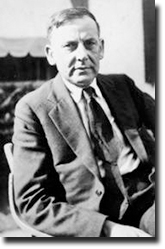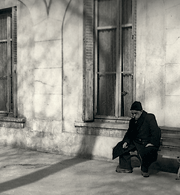Alfred Richard Orage
 Equipped with the barest formal education, a formidable natural intelligence and an unquenchable yearning to understand, Alfred Richard Orage (1873-1934) emerged from British 19th Century working class poverty to survey the significant literary, psychological, political, and spiritual trends of the early 20th century.
Equipped with the barest formal education, a formidable natural intelligence and an unquenchable yearning to understand, Alfred Richard Orage (1873-1934) emerged from British 19th Century working class poverty to survey the significant literary, psychological, political, and spiritual trends of the early 20th century.
His literary skills and wide range of interests led him to edit the enormously influential journal The New Age from 1907 until 1922.
In 1914 Orage met with P.D. Ouspensky, whose ideas left a prominent impression. When Ouspensky moved to London in 1921, Orage began attending his lectures on a “fragmentary” teaching. In February 1922, Ouspensky introduced Orage to Gurdjieff. Selling the New Age, he moved to Fontainebleau to study at the Institute for the Harmonious Development of Man.
In January 1924, Orage went to New York to help Gurdjieff with his first visit to America and later introduced and supervised the Work there.
In 1930 Orage returned to England in an attempt to found a new magazine. The New English Weekly began in April 1932. In its pages, Orage explored politics and was a primary figure in the reviving Social Credit movement.
He was planning to introduce Gurdjieff’s ideas in that paper and elsewhere when he died on the night of November 5, 1934.

